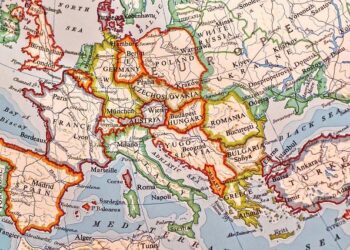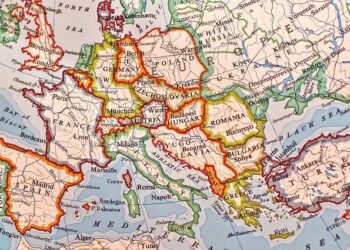Poland has recently found itself at the center of a heated debate over immigration and humanitarian aid. As tensions rise across Europe regarding migrant flows, questions are emerging about the legal and moral implications of assisting immigrants in Poland. DW investigates whether helping undocumented migrants is being treated as a criminal offense, shedding light on the complex intersection of national security, human rights, and the rule of law in the country.
Poland’s Legal Crackdown on Immigration Aid Raises Humanitarian Concerns
Recent legislative changes in Poland have intensified scrutiny and legal consequences for individuals and organizations offering assistance to immigrants and refugees. Volunteers, NGOs, and even private citizens face potential criminal charges for activities previously considered humanitarian acts, such as providing food, shelter, or legal advice. Critics argue this hardline stance not only undermines Poland’s commitment to human rights but also creates an environment of fear and mistrust, discouraging vital support networks for vulnerable migrant populations.
Key impacts of the crackdown include:
- Increased arrests and prosecutions of aid workers
- Restrictions on NGO operations near border areas
- Heightened anxiety among immigrant communities
- International condemnation from human rights observers
| Stakeholder | Effect of New Laws |
|---|---|
| Volunteers | Risk of imprisonment |
| NGOs | Operational bans near borders |
| Immigrants | Reduced access to aid |
| Government | Claims increased border security |
The Impact on Volunteers and NGOs Offering Support to Migrants
Volunteers and NGOs working on the ground in Poland find themselves caught in a precarious situation where the lines between humanitarian aid and legal boundaries blur dangerously. The tightening of immigration laws has led to increased scrutiny of those offering assistance to migrants, generating a chilling effect across civil society. Many fear prosecution for acts traditionally viewed as basic human compassion, such as providing food, shelter, or transportation. This legal uncertainty has forced NGOs to scale back operations or adopt more cautious strategies, impacting their ability to deliver timely support to vulnerable individuals.
Key challenges faced by volunteers and NGOs include:
- Risk of criminal charges under vaguely defined anti-smuggling laws
- Reduced funding and visibility due to political pressure
- Complicated coordination with authorities wary of supporting migrants
- Emotional and psychological toll on aid workers facing hostility
| Aspect | Implication |
|---|---|
| Legal Risks | Volunteers may face fines or imprisonment |
| Operational Changes | Shift towards low-profile, discreet assistance |
| Community Impact | Decreased trust between migrants and helpers |
| Advocacy Efforts | Heightened calls for legal reform and protections |
Navigating the Challenge Balancing National Security and Human Rights in Poland
Poland finds itself at a complex crossroads where concerns for national security are increasingly influencing its policies on immigration. Recent legislative measures targeting individuals who assist undocumented migrants have sparked intense debates domestically and internationally. Authorities argue that such policies are necessary to uphold the rule of law and prevent illegal border crossings, especially given Poland’s position as a frontline state to the EU external border. However, critics warn that criminalizing humanitarian aid risks undermining fundamental human rights and Poland’s commitments under international law.
Amid this tension, human rights organizations have raised alarms over the consequences faced by volunteers, activists, and local communities offering support to migrants. The situation has brought into focus difficult questions about the balance between maintaining security and preserving humanitarian values. Below is an outline of key points fueling this contentious debate:
- Legal risks: Increasing prosecutions for aiding migrants spotlight the shrinking space for civil society involvement.
- Border security concerns: Authorities emphasize the need for strict enforcement to deter unauthorized crossings.
- Humanitarian impact: Potential chilling effects on assistance and increased vulnerability of migrants trapped at the border.
| Aspect | Security Perspective | Human Rights Perspective |
|---|---|---|
| Legal Framework | Strict enforcement and penalties | Protection of asylum seekers’ rights |
| Civil Society Role | Potentially obstructive | Essential humanitarian support |
| Border Management | Security-driven controls | Access to protection and due process |
In Summary
As Poland continues to grapple with migration challenges amid increasing political and social tensions, the debate over whether aiding immigrants constitutes a crime remains sharply divided. While government authorities emphasize national security and legal frameworks, humanitarian organizations and advocates argue for compassion and international solidarity. The resolution of this contentious issue will not only shape Poland’s immigration policies but also reflect broader European values in addressing one of the region’s most pressing humanitarian questions.















